
Peter Azzopardi
Professor, Global Adolescent Health, Murdoch Children's Research Institute
Less ![]()

Peter Barham
Professor emeritus, University of Bristol
Peter Barham's research at the University of Bristol is concerned with polymer physics. He found ways to connect his research with his love of penguins, including the creation of silicon-based flipper bands which can be used for monitoring penguin populations. The silicone bands are designed to minimize the potential impact of carrying an external marking device and are currently in use on African penguins (Spheniscus demersus) at Bristol Zoo, UK and in the wild in South Africa. More recently, together with colleagues in the Computer Science Department at the University of Bristol, he has developed a computer vision system for the automatic recognition of African penguins. This system in 2008[2] was undergoing trials in South Africa.
Less ![]()
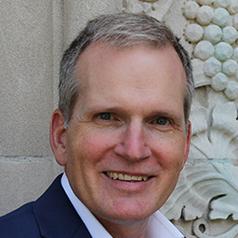
Peter Berg
Professor of Employment Relations; Director of Human Resources and Labor Relations, Michigan State University
Peter Berg is professor of employment relations and Director of the School of Human Resources and Labor Relations at Michigan State University. His research interests include work-life flexibility policies and practices, the implications of an aging workforce for organizations, and international comparisons of working time. Professor Berg is the author of numerous publications in a variety of academic journals, including ILRReveiw, Human Relations, and Human Resource Management Review. He is also a co-author of the book Manufacturing Advantage: Why High Performance Work Systems Pay Off. Professor Berg has been a Fulbright Scholar and conducted research or presented his work in over 20 countries around the world. He has served as an executive board member of the Labor and Employment Relations Association (LERA) and as President of the Industry Studies Association. Professor Berg also serves on the editorial board of ILR Review, Work, Aging, and Retirement, and on the international advisory board of the British Journal of Industrial Relations.
Less ![]()

Peter Bloom
Lecturer in Organisation Studies, Department of People and Organisation, The Open University
I am a lecturer in the Department of People and Organisations at the Open University. My primary research interest centre reconceptualising power, resistance and ideology – specifically in the contemporary context of capitalism. In 2009, I was awarded a doctorate in Ideology and Discourse Analysis at University of Essex for my thesis, Creating the “Chinese Market”: The CCP and the Discursive Construction of an Authoritarian Capitalism through a Maoist Governing Paradigm, 2002-2008, which was funded through the Overseas Research Awards scheme. Since this time I have amassed a growing international publishing record in the fields of organizational studies and social theory. My work has been published in Theory and Event, Journal of Political Ideologies, Journal of Political Power, Research on the Sociology of Organization, Culture and Organizations, Ephemera, Journal of Organizational Change Management, Organization and International Journal of Žižek Studies among others. I am currently completing a manuscript entitled ‘Authoritarian Capitalism in the Age of Globalization’ to be published by Edward Elgar Press.
For more details you can visit my academia.edu page at
https://open.academia.edu/PeterBloom
Less ![]()

Peter Butt
Associate Professor, Department of Academic Family Medicine, University of Saskatchewan
Less ![]()
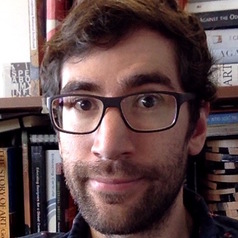
Peter Buwert
I am a lecturer in Graphic Design at Edinburgh Napier University. My general research interests surround the social, ethical and political dimensions of visual communication design as it operates within society. My PhD research investigating the ethical foundations of design was carried out at Gray’s School of Art, Robert Gordon University.
Less ![]()

Peter Caley
Senior Research Scientist in quantitative ecology, CSIRO
Peter has a 35-year career undertaking applied research in the fields of animal populations, animal disease, invasive plants and pests, human diseases and much more ... He has a PhD in Applied Ecology and Masters of Applied Science from the University of Canberra.
Less ![]()

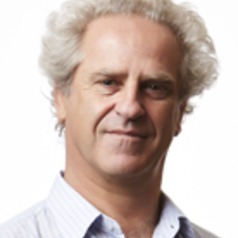
Peter Christoff
Peter Christoff is a political scientist and Associate Professor in the Department of Geography, where he teaches climate policy and environmental policy. He was formerly a member of the Victorian Premier's Climate Change Reference Group, and of the Victorian Ministerial Reference Council on Climate Change Adaptation, under the Victorian Brumby Government. He is also currently a Board member of the Australian Conservation Foundation and was its Vice President for eight years. His recent publications include the books 'Four Degrees of Global Warming: Australia in a hot world' and 'Globalization and the Environment' (with Prof. Robyn Eckersley).
Less ![]()
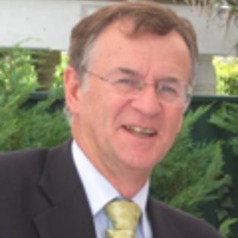
Peter Collignon
Professor, infectious diseases and microbiology, Australian National University
Professor Collignon works as an Infectious Diseases physician. He is also a microbiologist and is director of the Infectious Diseases Unit and Microbiology at The Canberra Hospital. He is also involved in teaching and is a Professor at the Medical School of the Australian National University.
He is active in many research and public health advocacy issues dealing with different infections and their risks. Particular interests are antibiotic resistance (especially in Staph), hospital acquired infections (especially blood stream and intravascular catheter infections) and resistance that develops through the use of antibiotics in animals. He is extensively involved in Infection Control projects looking at procedures and current practices in medicine and how these may be improved to decrease the risks for patients acquiring infections.
He has been and continues to be an active member of many national and international committees, including those of the Australian Quality and Safety Commission. He has been appointed to many of the expert committees of the World Health Organization (WHO) on the issue of antibiotic resistance and the use of antibiotics in food animals.
In June 2010 he was made a Member of the Order of Australia (AM) for services to Medicine in Infectious Diseases, Microbiology and Infection Control.
Less ![]()
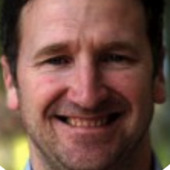

Peter Coveney
Peter Coveney holds a Chair in Physical Chemistry and is Director of the Centre for Computational Science, based in the Department of Chemistry. He is an Honorary Professor of Computer Science at UCL and Professor Adjunct at Yale University. His research focuses on many different areas, from molecular and mesoscale fluid dynamics simulations to multiscale materials modelling and computational biomedicine, all exploiting high performance computational techniques. He is co-organiser (with Jean Pierre Boon and Sauro Succi) of the Solvay Symposium on Multiscale Modelling at the Physics, Chemistry and Biology Interface, which is taking place at the Free University of Brussels in Brussels, Belgium, 19-21 April 2016. His paper to be presented at the conference, entitled "Big Data Needs Big Theory Too", is co-authored with Prof Ed Dougherty and Dr Roger Highfield.
Less ![]()

Peter Cowling
Professor Peter Cowling is a member of the Department of Computer Science and the York Centre for Complex Systems Analysis (YCCSA) at the University of York. His research is focussed on models and algorithms for decision making in games and resource optimisation problems, and to this end he works with a wide range of industry partners in the games and IT industries.
He is the Director of 3 large projects in the area of digital games and media:
The Digital Creativity Hub (DC Hub -www.digitalcreativity.ac.uk) was recently awarded £18 million in funding which will drive our ambition to become a world centre of research in digital games, interactive media and the space where they converge. It has over 80 partners from digital content industries.
The EPSRC Centre for Doctoral Training in Intelligent Games and Game Intelligence (IGGI - www.iggi.org.uk) has over £12 million in support to train 56+ PhD students working with the games industry over the next 7 years.
The New Economic Models and Opportunities for digital Games (NEMOG - www.nemog.org), as well as the DC Hub and IGGI is actively investigating how digital games and interactive media can be repurposed to achieve economic, scientific, social and cultural impact - primarily through working with industry and public sector organisations.
He has also worked on a number of projects to develop IT decision support systems for road maintenance, personnel scheduling, logistics and manufacturing.
He has published over 100 papers in leading scientific conferences and journals and gained over £35 million in research funding across 38 projects.
Less ![]()
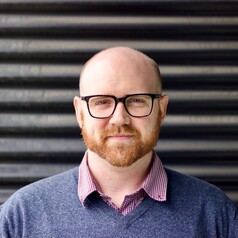
Peter Crank
Assistant Professor of Geography, University of Waterloo
Peter Crank is an urban climatologist and geographer focused on helping people by improving thermal comfort, mental wellbeing, and education of the public through atmospheric measurements, statistical, and numerical modeling.
My experiences in project management, scientific writing, and science communication have resulted in multiple publications via peer-reviewed research and were achieved through successful research grant support writing. My science communication skills have also been leveraged in developing students in university settings by managing classrooms of various sizes and purposes, from labs to lectures, introductory courses to graduate level seminars.
Less ![]()
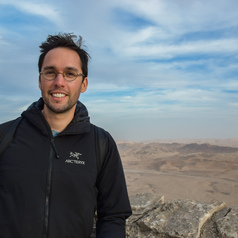
Peter Crockford
Assistant Professor, Earth Sciences, Carleton University
I am an assistant Professor at Carleton University in Ottawa Canada. My research explores the interactions of life and the surface environment over the course of Earth history. To do this I sample ancient rock formations and apply cutting edge geochemical techniques to explore this history. Before arriving at Carleton I was a Postdoctoral Fellow at Woods Hole Oceanographic Institution, Harvard University and the Weizmann Institute of Science which I began after completing my PhD at McGill University.
Less ![]()
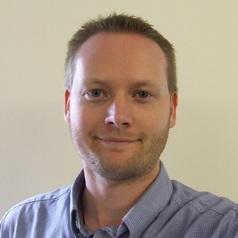
Peter Cruddas
Senior Lecturer in Environmental Engineering, University of Portsmouth
I completed my BEng (Hons) degree in Civil and Structural Engineering at the University of Bradford, and my MSc in Water Management (Community Water Supply) at Cranfield University. After two years working in industry, I returned to Cranfield University to complete my PhD titled 'Anaerobic ponds for domestic wastewater treatment in temperate climates'.
I continued at Cranfield at a Post-Doctoral Research Fellow for three years, before taking a role as Lecturer in Water and Environmental Engineering at the Botswana International University of Science and Technology.
In July 2019 I returned to the UK to take up my current appointment as Senior Lecturer in Water and Environmental Engineering and the University of Portsmouth.
My current research focuses on resource recovery - water, energy, and minerals - from wastewater streams, including with the EC Interreg project NEREUS.
I am also interested in technology implementation for improved WASH access in developing countries, and how that technology interacts with the social and economic issues present in the sector.
An emerging research interest is the treatment and remediation of pollution of coastal cities, particularly at present the issue of Nitrates in Portsmouth Harbour and the Solent.
Previous research activity involved work for major UK water companies and consultancies, and for the development sector in energy recovery from latrine wastes and solid waste streams in developing countries. Whilst at Cranfield University, I was a Work Package leader within the European Commission FP7 project Water4India, and contributor to the Nanomembrane Toilet, a Phase 2 Bill and Melinda Gates Foundation project.
Less ![]()

Peter Cunliffe-Jones
Visiting Researcher & Co-Director Chevening African Media Freedom Fellowship, University of Westminster
I have been a Visiting Researcher at University of Westminster in London since 2019, researching types, drivers and effects of misinformation and the status and effects of policies intended to counter misinformation. At the same time, I am Co-Director of a course on media freedom in the UK and Africa, run in partnership with the UK's Chevening Foundation.
My professional background since 1990 has been is in journalism. In 2012, I devised and founded the fact-checking organisation Africa Check in a partnership with the Journalism Department of the University of the Witwatersrand in South Africa, and ran it until 2019.
Less ![]()


Peter Davies
Professor of Education Policy Research and Director of Research, School of Education, University of Birmingham
Peter is Director of Research and Deputy Head of the School of Education at the University of Birmingham. He also leads the Centre for Higher Education Equity and Access and programme lead for the Masters in School Improvement and Educational Leadership.
His main research interests are multidisciplinary analysis of participation, choice and engagement in secondary and higher education.
Private and public finance of education.
Conceptual change with particular reference to understanding in economics.
Relationships between different theoretical perspectives on conceptual change, particularly Variation Theory and Threshold Concepts.
Development of teachers’ thinking and practice through ‘Learning Study’
Less ![]()

Peter Day
Professor of Children's Oral Health and Consultant in Paediatric Dentistry, University of Leeds
Paediatric Dentist working in Leeds and Bradford. Academic with interests in children's oral health, dental trauma and paediatric dentistry.
Less ![]()

Peter de Menocal
Director, Woods Hole Oceanographic Institution
Peter B. de Menocal is the eleventh president and director of Woods Hole Oceanographic Institution, effective Oct. 1, 2020. A marine geologist and paleoclimatologist, de Menocal's research uses deep-sea ocean sediments as archives of how and why Earth's ocean and climate have changed in the past in order to predict how they may change in the future.
Prior to assuming leadership of WHOI, de Menocal was the Thomas Alva Edison/Con Edison Professor in the Department of Earth and Environmental Sciences at Columbia University's Lamont-Doherty Earth Observatory. In 2015, he became the founding director of Columbia's Center for Climate & Life, a research accelerator of 120 scientists and other experts dedicated to understanding how climate affects life's essentials-the security of food, water, and shelter-and to exploring sustainable energy solutions in partnership with industry, finance, and government.
From 2016 to 2019, De Menocal served as Columbia's Dean of Science for the Faculty of Arts & Sciences, overseeing 240 faculty across the university's nine scientific departments. During his tenure as dean, de Menocal developed and carried out a strategic plan that helped double philanthropic support for the sciences at Columbia, significantly increase success in winning large center and institute awards, and increase faculty hiring rates for women and under-represented minorities in the natural sciences.
De Menocal has published more than 150 scientific papers over his decades-long career in oceanography. He has received numerous awards and distinctions, including Fellow of the American Geophysical Union and the American Association for the Advancement of Science, AGU Emiliani lecturer, a Lenfest Columbia Distinguished Faculty award, and a Distinguished Brooksian award. He earned a doctorate in geology from Columbia University and a master's degree in oceanography from the University of Rhode Island, and was awarded an honorary doctorate from St. Lawrence University.
Less ![]()

Peter Dearden
Professor and Director of Genomics Aotearoa, University of Otago
My lab aims to understand the molecular basis of morphological evolution by studying how the developmental pathways that regulate embryogenesis evolve to produce different animal morphologies. To study this we use two model systems, the Honeybee (Apis mellifera) and a Rotifer (Brachionus plicatilis).
Less ![]()
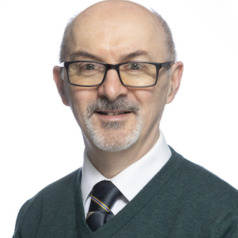
Peter Deeney
Principal Investigator and Senior Post Doctoral Researcher in Energy Finance, Environmental Research Institute, University College Cork
Peter Deeney is a senior post doctoral researcher in University College Cork, and the Principal Investigator of the Wind Value project. The Wind Value project is funded by the Irish Research Council. It aims to produce two decision-support tools, one for wind-farm owners to assist with end-of-life decisions for their wind farms (decommissioning, life extension or repowering), and one for community investors to estimate risk. Peter also works on the XROTOR project examining the use of a novel vertical axis offshore wind turbine, and with colleagues in IEA Wind Task 45 investigating methods to recycle used wind-turbine blades. He is a member of the Re-Wind Network.
Less ![]()

Peter Ditlevsen
Professor in physics of ice, climate and earth, University of Copenhagen
I am a member of the Ice and Climate Group and associated with the Complexity Group.
My fields of interest are in climate research, turbulence, meteorology, complex systems, time series analysis and statistical physics.
Less ![]()
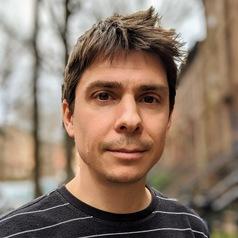
Peter Dixon1
Associate Professor of Practice, Negotiation and Conflict Resolution, Columbia University
Peter Dixon is an Associate Professor of Practice in Negotiation and Conflict Resolution at the School of Professional Studies at Columbia University. He received his PhD in sociology from the University of California, Berkeley in 2015. In his research, Dr. Dixon uses mixed methodologies to understand how local knowledge can influence transformative solutions toward peace and justice in conflict-affected communities.
Currently, he is researching community-based transitional justice in Colombia and bottom-up approaches to public safety and restorative justice in urban America. He has received support for this work from foundations including the National Science Foundation, United States Institute of Peace, Inter-American Foundation, and Humanity United. His writing has been published in journals including the International Journal of Transitional Justice, the Journal of Human Rights Practice, and Law and Social Inquiry, and in a number of edited volumes.
Dr. Dixon collaborates with diverse organizations in his work, always with the goal of making his research useful for addressing social problems and respectful of the communities who these problems ultimately affect. As a former evaluation specialist at the United Nations in New York and at the International Criminal Court in The Hague, he also continues to support international organizations on monitoring, evaluation and strategy. He serves on the Boards of the NGO Everyday Peace Indicators and the Davis Collaborative in Conflict Transformation at Middlebury College. He is also a Faculty Affiliate at the University of California Berkeley Possibility Lab and fellow of the Salzburg Seminar.
Less ![]()

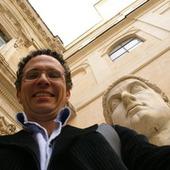
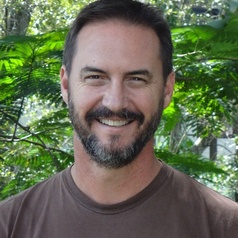
Peter Ellerton
Lecturer in Critical Thinking, The University of Queensland
Director of the University of Queensland Critical Thinking Project and lecturer in critical thinking in the school of Historical and Philosophical Inquiry. Degree in Education and post graduate degree in Philosophy. Master of Contemporary Science from the ANU. Former Head of Experimental Science at the Queensland Academy of Science, Mathematics and Technology.
Less ![]()

Peter Fisher
Adjunct Professor, Global, Urban and Social Studies, RMIT University
Peter Fisher is an Adjunct Professor in in the School of Global, Urban and Social Studies at RMIT University. He has spearheaded a large number of projects at all levels of government as well as private industry including stormwater, creating cooler cities through the use of vegetation and a systemic integration of the water and electricity sectors. He has further been involved in education and training writing tertiary level courses on water management as well as climate change adaptation and water management; some for AusAid. He has also contributed a chapter on Melbourne to a new book, Resilient coastal city regions: Planning for climate change in the United States and Australia as well as to another new book, Managing Urban Disaster Recovery on infrastructure. He has just published with D Trainham, a PhD candidate, Naturizing outside-in: Reconnecting buildings with the natural world through a design innovation metric https://www.cuge.com.sg/research/images/cugeresearch/CG6/Article%2014..pdf in the January 2013 issue of the Singapore based journal, CITYGREEN https://www.cuge.com.sg/research/CITYGREEN. This has recently been incorporated into the Green Building Council of Australia's Innovation Challenge program. A Green Star naturizing index can now be found at http://www.gbca.org.au/uploads/78/34894/Market_Intelligence_Research_FINAL_JUNE2014.pdf.
As an environment and science writer Dr. Fisher has published thirty eight articles since his first for the Australian Financial Review in 1999. Those of relevance to the carbon/climate change arena are: Water industry guilty of burning too much energy, Water Special (AFR, Tuesday 14 August 2003), Susceptible to calamity: Extremes of climate are a fact of life and we should be better prepared for them, The Australian, (Tuesday 21 March, 2006); Cold comfort in climate change, Sydney Morning Herald, (Saturday 6 January 2007); Canberra Times, Climate: Time is against us (Monday 8 January 2007.); and Why we need the urban forest, Urban magazine, (July quarter, 2007). His most recent pieces to with adaptation have appeared as OpEds in The Age - Ready for heavy weather, Monday 23 April 2008; Planning for a flood, Monday 29 September 2008; Big solutions for our water needs will use even more energy, Monday 9 March, 2009; It's time literally to go green, Monday 23 January, 2009; followed by A lack of ingenuity is evident in dealing with our water crisis, Tuesday 28 July 2009. And, a week before the latter, All change for the future, The Australian, Wednesday 22 July 2009. Further pieces appearing in The Age and National Times since then have been Rack ’em and stack ‘em: a silly solution to population growth, Thursday 18 March 2010. When everything's connected, one fault can be catastrophic. Monday, June 21, 2010 and Building for a cantankerous planet, Monday October 11, 2010, and Energy hungry water providers need to get with the power, Monday 3 January 2011.
Less ![]()

Peter Franklin
Associate Professor and Director, Occupational Respiratory Epidemiology, The University of Western Australia
Peter Franklin is a researcher with interests in environmental impacts on human health. His research has been focussed on the impacts of air pollution, predominantly indoor air pollution, on the respiratory health of children and adults. He currently heads the indoor air pollution node of the Collaborative Research Centre for Asthma and Airways. He is also the Environmental Co-ordinator of the WHO Collaborating Centre for Research on Children's Environmental Health at the Telethon Institute for Child Health Research. His research interests also involve measures of infant and pre-school lung function and how these tests can be utilised in environmental health research.
Less ![]()

Peter Frederick
Research Professor, University of Florida
I am interested in the ecology and conservation of wetlands, and particularly of wetland vertebrates. These creatures are adapted to environments that are extremely productive, yet often very unpredictable, and whose nutrient cycling is completely different from terrestrial, oceanic or lacustrine environments. The field of wetland science is dominated by studies of energetic flow, plant ecology, and nutrient flux, in which wetland vertebrates are often assumed to play minor roles. Yet animals, even vertebrates, are often key in the healthy functioning of these ecosystems, and the conservation and restoration of these ecosystems depends strongly upon an understanding of how larger animals use them, especially in terms of movement behavior, foraging ecology, and reproduction. For vertebrates, this often requires understanding various aspects of ecosystem function at once, and often at regional and even international scales. In my research program, wetland birds have been used intensively and extensively as indicators of ecosystem health, ecosystem function, and as guides for the spatial and temporal scale at which conservation and restoration should occur. My work has included vertical studies of long-legged wading birds in the Everglades (health, reproduction, foraging ecology, energetics, flight behavior, communication, movements, demographics, feedback nutrient loops), comparisons of ecosystems (Everglades, Miskito Coast, Okavango Delta, Brazilian Pantanal), measuring anthropogenic effects (human disturbance, hydrological management, nutrient pollution, powerlines, construction, contaminants), multidecadal studies of population dynamics and movements, and ecosystem/regional planning for conservation.
Less ![]()

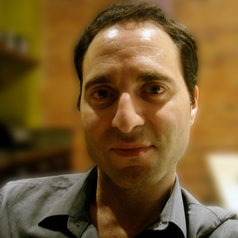
Peter Ghin
Research fellow, Future Of Work Lab, Faculty of Business and Economics, The University of Melbourne
Peter is an experienced researcher whose interests span topics including the future of work, inclusive employment, and leadership. In his role as a Research Fellow for the Future of Work Lab, he has focussed on exploring patterns of inward migration, particularly the way remote working has influenced the movement of human capital and its potential impact on regional innovation and entrepreneurship.
Less ![]()
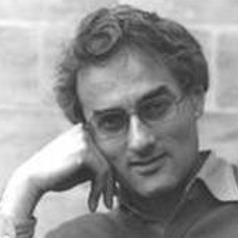
Peter Ghosh
Dr. Peter Ghosh is Associate Professor of Modern History at Jean Duffield Fellow in Modern History, University of Oxford.
I am interested primarily in the history of ideas, both social and political theory and also the history of historiography, in accordance with my research interests.
I have two related research interests: first, the interface between political ideas and English politics, ca 1850-1895; secondly, the evolution of Western European and British ideas, including historiography, from the Enlightenment to the present. My current publishing commitments centre on Max Weber.
Less ![]()
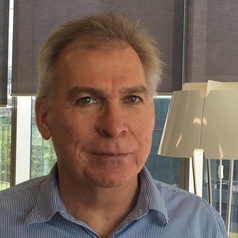
Peter Grace
Professor of Global Change, Queensland University of Technology
Peter Grace is Professor of Global Change within the Science and Engineering Faculty and a Theme Leader at the Institute for Future Environments at QUT.
He is a terrestrial ecosystems scientist specialising in the interaction of carbon, nitrogen and water in soils.
He is currently the national coordinator of a major research network funded by the Australian government developing innovative soil and water management strategies which will reduce our national greenhouse gas footprint without impacting on agricultural production.
Peter has worked throughout the Americas, Asia and Africa in developing sustainable food production systems. He holds adjunct positions at the Earth Institute of Columbia University (New York) and Michigan State University.
Less ![]()
- Market Data















